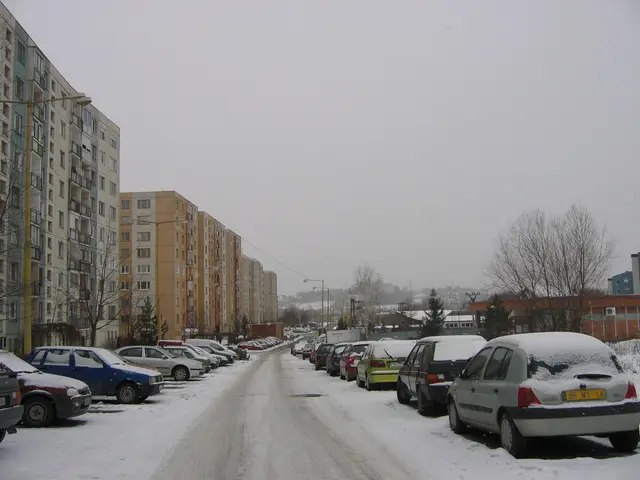Unraveling the CDU-Left Dance: A Post-Chancellor Election Analysis
CDU Faces Incompatibility Decision Since Last Tuesday (Making history)
Join us as we delve into the intricate dance between Germany's Christian Democratic Union (CDU) and the Left Party, particularly post-Chancellor election in the Bundestag.
After the Chancellor Election, relations shift...
Following the second round of voting for the Chancellor election, the Union faction held discussions with the Left, marking a resolution of the CDU's incompatibility issue, as per Left leader Schwerdtner. Despite this, she described Chancellor Merz as a "class enemy."
In an interview with ntv.de, Schwerdtner congratulated Friedrich Merz on Tuesday and made it clear that the Left will be necessary moving forward. While there hasn't been a direct conversation with Merz, Schwerdtner noted that the CDU's incompatibility resolution is effectively a thing of the past since Tuesday.
The CDU's problematic past...
Politically, the CDU's distinction from the Left has been a contentious issue, with the CDU historically opposed to Ostpolitik, a policy initiated by Chancellor Willy Brandt (SPD) to engage with East Germany. This opposition, rooted in differing perspectives on international and domestic politics, reflects a long-standing gulf between the CDU and left-wing parties.
More recently, the CDU's approach to the rise of the far-right Alternative for Germany (AfD) party has strained relations further. While the CDU has attempted to incorporate some of the AfD's demands into its policies, this strategy has been seen as bolstering the AfD rather than resolving its incompatibility with the Left.
Negotiations ahead...
Schwerdtner is ready for further discussions with the Union, expressing willingness to collaborate on key issues such as reforming the debt brake. However, the Left remains wary of negotiations with Chancellor Merz, whom Schwerdtner considers a "class enemy." Despite this, negotiations are likely to continue, particularly if they serve the interests of reforming the debt brake.
A shifting landscape...
In the aftermath of the Chancellor election, there is a growing sense that the political landscape in Germany is shifting. The ongoing tension between the CDU and the Left, along with the CDU's internal struggles, is a testament to this shifting landscape. The CDU, in its bid to maintain political relevance, may find itself reassessing long-held positions and forging new alliances.
Troubled waters ahead?
As the new coalition takes shape, it remains to be seen how the CDU will navigate its relationship with the Left. The CDU's Chancellor Chancellery Chief, Thorsten Frei, has shown openness to abolishing the incompatibility resolution, indicating a possible shift in the party's stance. Only time will tell if this symbolic gesture will lead to tangible change in the CDU-Left relationship.
[1] For Schwerdtner, Merz is "the class enemy"[2] Not 'yuck' anymore? Union debates its relationship with the Left[3] Chancellor election sparks debate CDU politician Frei open to abolishing incompatibility resolution[4] Six insights into Merz's election Merz's disgrace, a small victory for the Left, and Klöckner's baptism of fire
- The Commission, following the Chancellor election, has been asked to submit a proposal for a directive on the protection of workers from the risks arising from the use of electronic equipment, mirroring the ongoing debates between political parties in Germany, such as the CDU and the Left.
- While the Christian Democratic Union (CDU) and the Left are ready for negotiations, particularly on reforming the debt brake, there is a lingering tension between the two parties, as the Left's leader Schwerdtner considers Chancellor Merz a "class enemy."
- In the context of the general news, the CDU's historic opposition to Ostpolitik, initiated by Chancellor Willy Brandt (SPD), and its more recent approach to the far-right Alternative for Germany (AfD) party have strained relations between the CDU and left-wing parties, potentially causing incompatibility issues.
- The CDU, as it navigates its changing relationship with the Left in the midst of shifting political landscapes, may find itself reassessing long-held positions and forging new alliances, much like any policy-and-legislation decision in the realm of politics.







